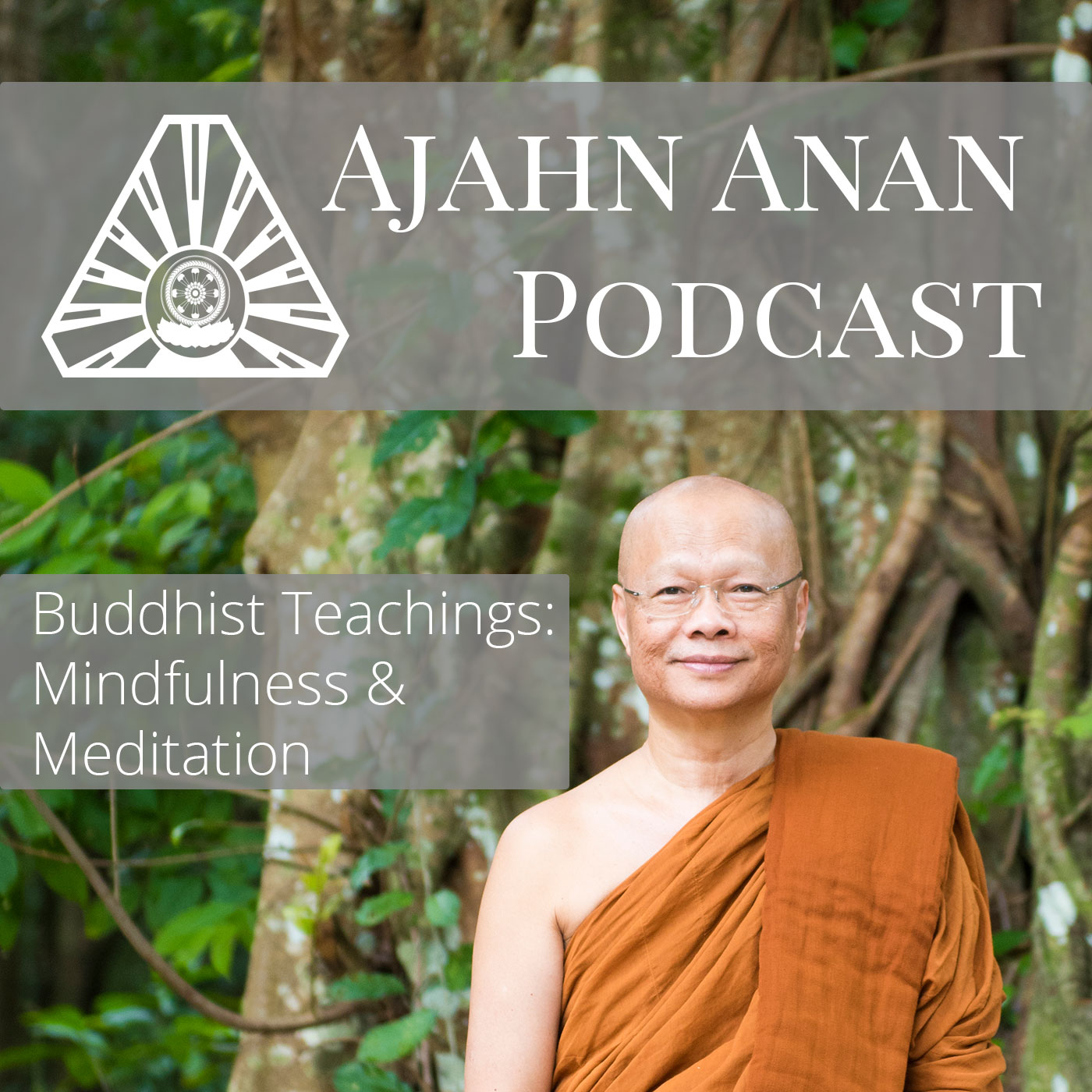
This is chanted at Wat Marp Jan every year as part of the celebration of Visakha Puja, on May 6th this year, 2020.
One can join the Wat Marp Jan community for the celebration online here: https://youtu.be/G2s4ZerAQ3E
Visakha Puja is the anniversary of the birth, enlightenment, and parinibbana of the Lord Buddha.

During the evening meditation period, Ajahn Anan outlines the Buddha’s methods for overcoming drowsiness, then talks about the importance of morality, relating a story from the time of the Buddha.

In this videoconference talk from 1 May 2020, Ajahn Anan discusses the enlightenment of the Buddha. This is in preparation for Visakha Puja on May 6th, the anniversary of the birth, enlightenment, and parinibbana of the Lord Buddha. One can join in the Wat Marp Jan community for the celebration online here: https://youtu.be/G2s4ZerAQ3E
Note: One can read such talks at the Wat Marp Jan ‘Reflections’ page, which also includes questions and answers with Ajahn Anan, which are not in the audio files. See: https://watmarpjan.org/en/dhamma-reflections/reflections-archive/

Ajahn Anan reflects on the wonderful qualities of the Buddha and how fortunate we all are that he had the compassion to teach the way out of suffering.
Given on 26th of April 2020

Ajahn Anan talks about the importance of the upcoming Visakha Puja, focusing on the Buddha’s compassion in developing the paramis and teaching us all the path to purity.

During the evening meditation, Ajahn Anan talks about simply knowing good and bad thoughts as such; being wise to them and not just wanting them to go. “If we don’t follow our bad thoughts,” he says, “they can’t harm us in any way.”
Even though this path may be difficult, it is something that we can do and if we put in the effort then we will reach our original mind.

From this videoconference talk from 26 April 2019, Ajahn Anan discusses choosing the right path.
An excerpt: “Here we look in the Buddha’s teaching, of those that had effort and eagerness to learn, like Ven. Rahula, who had ordained as a novice at 7 years of age. He did not eat in the afternoon from that age. But he had a keen interest in learning and study. Every day he would put a fistful of sand in his hand and make the determination that he would gain knowledge and he would learn from his senior teachers and preceptor, to the amount of the grains of sand in his hand. He set up his vow of truth, that he would learn and have effort and diligence in learning to a high level. This was why the Buddha bestowed on him the title of being foremost in being eager to learn.”
Note: One can read Dhamma talk transcripts at the Wat Marp Jan ‘Reflections’ page, which also includes questions and answers with Ajahn Anan, which are not in the audio files. See: https://watmarpjan.org/en/dhamma-reflections/reflections-archive/

Weekly podcast with teachings from Venerable Ajahn Anan Akincaño.
Note: The subscribe button above only works for devices with iTunes installed (iPhones and iPads). If you use an Android device install Google Podcasts and search for “Ajahn Anan”.

During this evening talk, Ajahn Anan emphasises the importance and use of samadhi and that it’s something that we are all capable of achieving. It’s natural for us to have many doubts, but if we carry on following this path of practice without stopping, we will see the results for ourselves.

During the evening meditation, Ajahn Anan tells us how the Dhamma is what brings light into our hearts. He then goes on to talk about the kamma of covid.
Given on 21st April 2020
